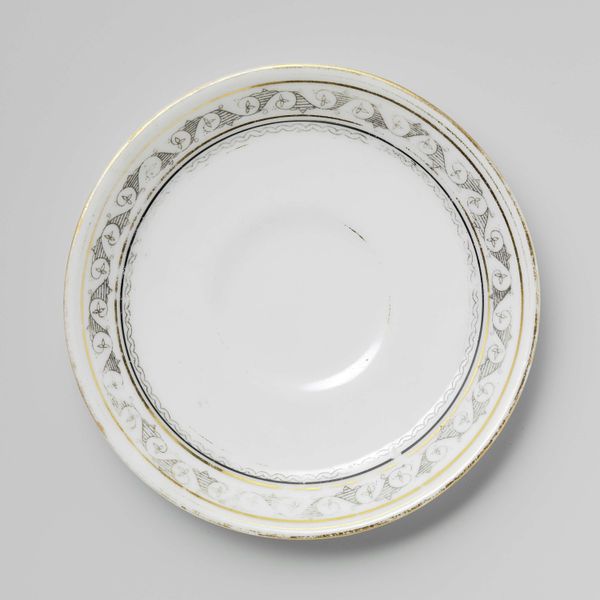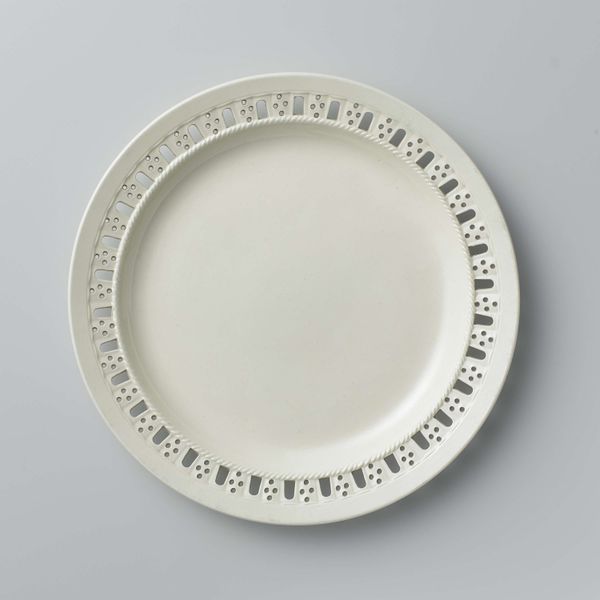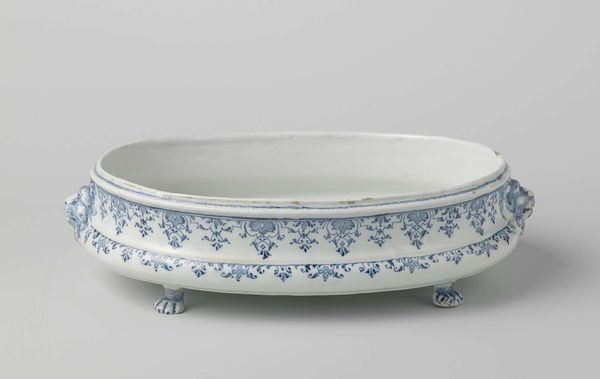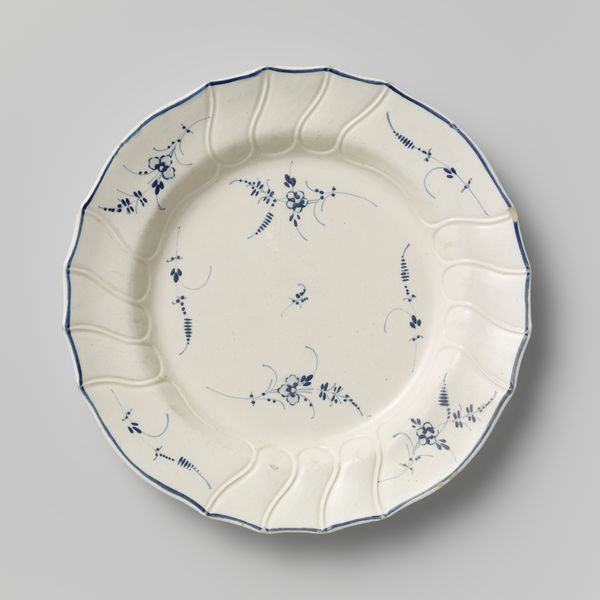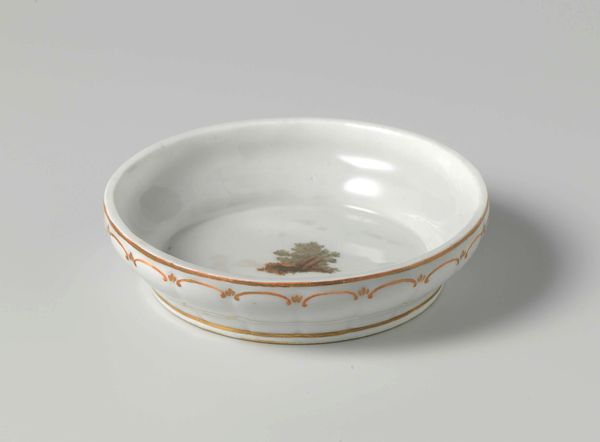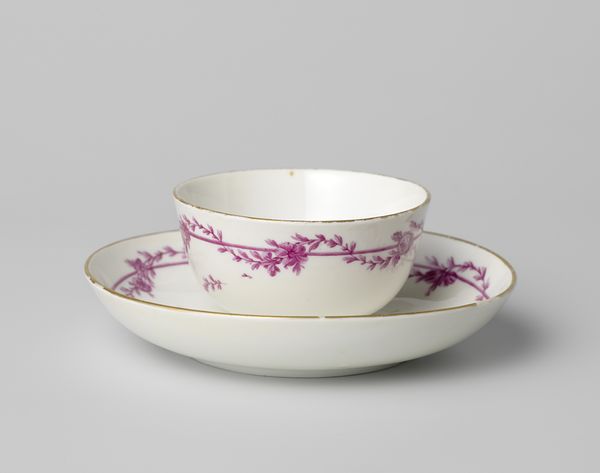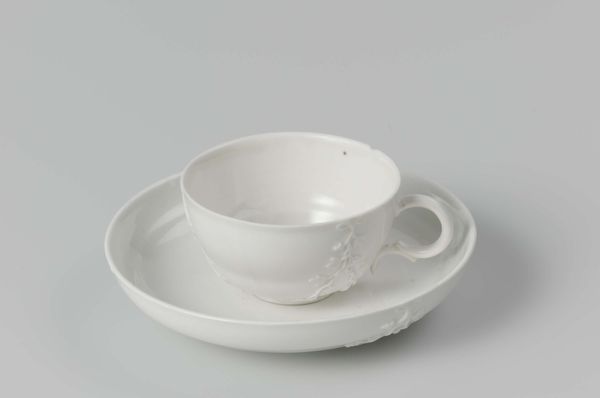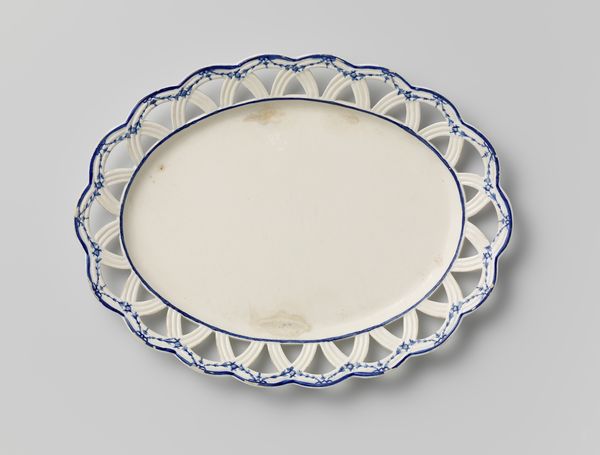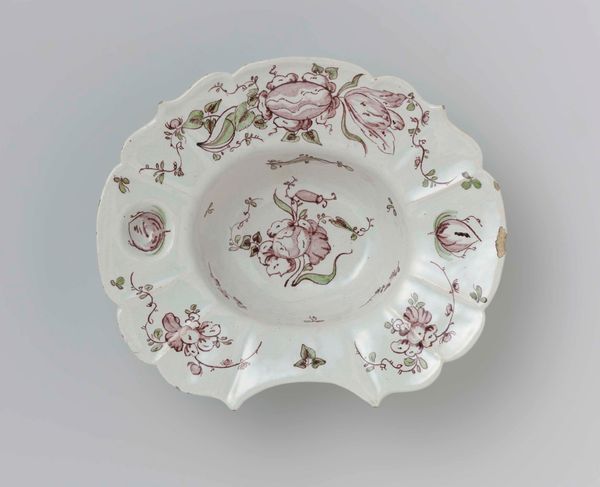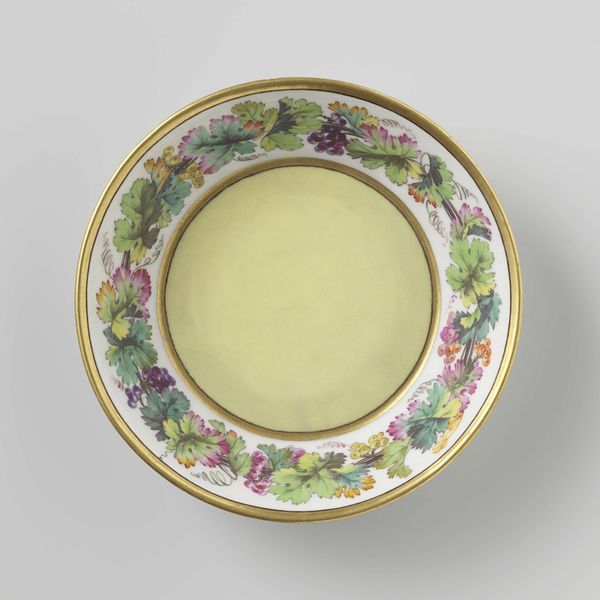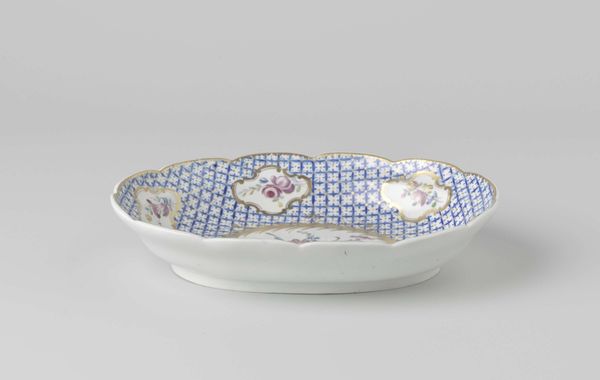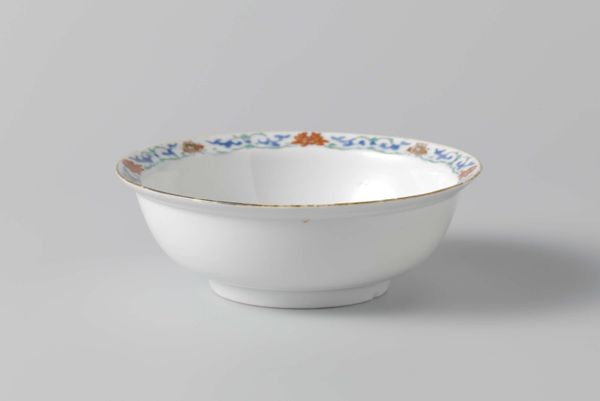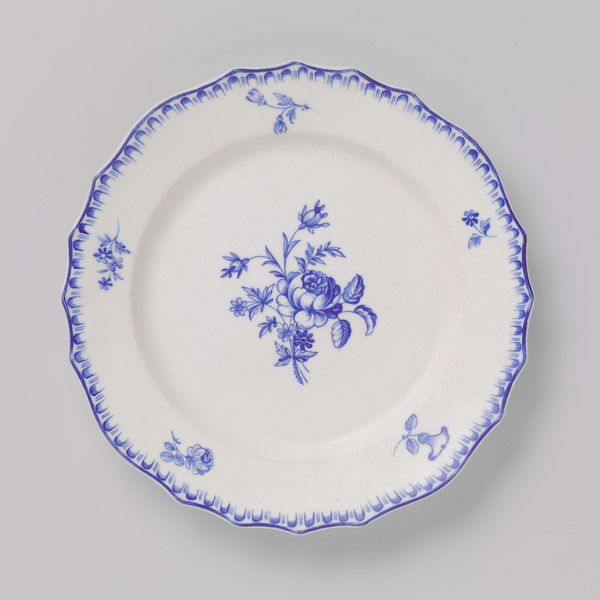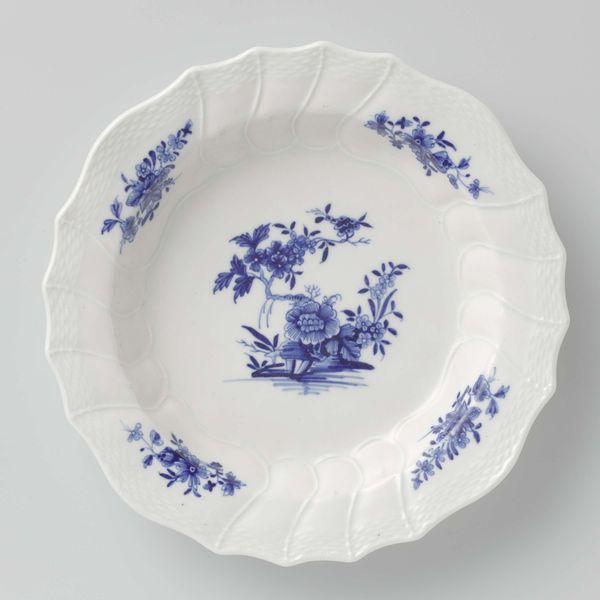
ceramic, earthenware
#
neoclassicism
#
ceramic
#
earthenware
#
stoneware
#
ceramic
#
decorative-art
Dimensions: depth 25.4 cm, width 25.2 cm, height 2.2 cm
Copyright: Rijks Museum: Open Domain
Editor: Here we have an oval dish, crafted from Spode creamware, dating back to around 1790 to 1820. The delicate ceramic seems so simple, but something about the piercing in the rim is really appealing. What stands out to you about the form of this piece? Curator: The plate exemplifies neoclassicism through its symmetrical arrangement and refined materiality. Notice how the central void compels one's focus on the geometric relationships between the concentric bands. The use of a cool blue outline serves as a visual delimiter and contributes to the plate's structured composition. Observe the repetitive pierced openings on the outer rim; the alternation between solid and void provides rhythmic articulation to the overall shape. Do you see how the colour scheme reinforces that geometric intent? Editor: I hadn’t thought about the way the colours reinforce that structured element. The pattern almost looks machine-made! Curator: Precisely. It represents an exploration of controlled form, in part inspired by ancient archetypes, mediated via advanced ceramic technology. One might decode it as the superimposition of orthogonal and circular design principles, with subtle, almost mathematical precision. Editor: So the technology informed the art itself! It makes me appreciate how carefully considered the design is, despite looking like a functional object. I initially missed a lot of these complex elements of geometric composition. Curator: By recognizing structure, repetition and colour theory we unveil levels of intent—how art and technology were mutually informing each other.
Comments
No comments
Be the first to comment and join the conversation on the ultimate creative platform.
